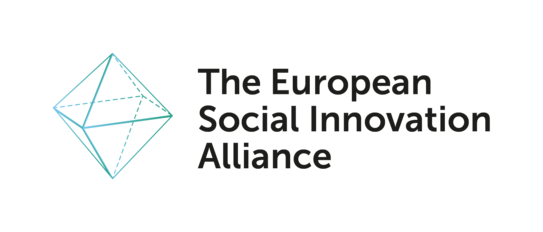Competence Centre for Social Innovation Germany (KoSI)
05/14/2021 - 05/13/2023
Research area Innovation and education in the digital society | PD Dr. Christoph Kaletka | Dr. Katrin Bauer | Daniel Krüger | Dr. Karina Maldonado-Mariscal | Marthe Zirngiebl | Beata Lewandowska
KoSI is committed to develop framework conditions for social innovations and supports the implementation and establishment of innovative solutions.
The Competence Center for Social Innovation Germany is organized by Social Entrepreneurship Netzwerk Deutschland e.V., PHINEO gAG, FASE GmbH, Technische Universität Dortmund, Diakonisches Werk Schleswig-Holstein, Ashoka Deutschland, CSI, IAT and MWAE with the lead partner Social Impact gGmbH and is supported by the European Commission with funds from the European Social Fund and European Programme for Employment and Social Innovation.
Across Europe, social and economic change is being shaped by megatrends such as demographic change, depopulation of rural areas, urbanization, the global climate crisis, the ever-increasing impact of digitalization on our working and private lives, the need for CO2-efficient production and value chains and resource-efficient consumption patterns, and currently still the consequences of the Covid-19 pandemic. Its downsides are manifested in social inequalities, poverty and social exclusion, and the increasing negative impacts of climate change. It is crucial for the future to find new answers to social, economic and environmental issues and to involve citizens and their organizations in the development, implementation and enforcement of policies and instruments, models and practices that are more appropriate and acceptable to address the major challenges at the global, national and regional levels. To do this, it is important to share knowledge and experience on opportunities, tools and methods, exchange information at national and transnational levels, and ensure that actions are implemented. By joining forces, we create new structures to get more voice and attention for Social Innovation on a political and overall societal level. In this way, we want to strengthen social and ecological sustainability in our society and make our contribution to achieving the 17 Sustainable Development Goals of the United Nations. European Social Innovation Alliance The Competence Center for Social Innovation Germany is part of the European Social Innovation Alliance (ESIA), a transnational association of 26 partners within a Europe-wide network of competence centers for social innovation on behalf of and funded by the European Commission. Factsheet on the European Social Innovation Alliance (ESIA): https://ec.europa.eu/european-social-fund-plus/system/files/2021-10/7.%20Factsheet%20ESIA%20FINAL.pdf
Germany:
- Social Impact (coordination)
- Diakonisches Werk Schleswig-Holstein
- FASE
- PHINEO
- SEND
- TU Dortmund (SFS)
- Ashoka (associated)
- Ministerium für Wirtschaft, Arbeit und Energie Brandenburg (associated)
- Universität Heidelberg (CSI) (associated)
- Westfälische Hochschule (IAT) (associated)
Europe:
- Social Innovation Academy (Denmark)
- Danish Design Centre (Denmark)
- National Foundation of Civil Society (Estonia)
- Development Centre of Võru County (Estonia)
- Tallinn University (Estonia) - Social Enterprise Estonia (Estonia)
- Ministry of Social Affairs (Estonia) (associated)
- Ministry of Interior (Estonia) (associated)
- Shipyard Foundation (Poland)
- Glasgow Caledonian University (UK)
- Social Innovation Exchange (UK)
- Glasgow City Council
- Centre for Civic Innovation (UK) (associated)
- Challenges Catalyst (UK) (associated)
- Community Enterprise in Scotland (UK) (associated)
- Firstport (UK) (associated)
- The Melting Pot (UK) (associated)
Project objectives Germany:
- Promotion of knowledge and action competencies
- Sensitization, consulting and coaching of decision makers
- Anchor promotion and financing of social innovations from ESF funds
- Analysis of the ecosystem
- Evaluate national and European experiences
- Continue European Social Entrepreneurship Monitor
- Analyze best-practice-examples
- Strategy
- Prepare analyses and recommendations for action
- Advocate for the implementation of a national strategy for social innovation
- Establish and disseminate funding concepts
- Political advocacy
- Create greater awareness of the role and importance of social innovation in society
- Permanently establish social innovation as an element of national innovation policy
- Transnational activities
- Regular transnational exchange of knowledge and experience
- Transnational workshops, conferences and symposia
At the Social Research Center the mapping of the ecosystem of social innovation in Germany as a basis for the development of a strategy to support social innovation as well as a knowledge base for policy advocacy and capacity building in Germany is realized:
- Exploratory research and description of exemplary contextual factors of social innovation in Germany (norms, structures, functional aspects in innovation processes and roles of actors)
- Qualitative analysis with regard to conditions for success and exemplary character
- Elaboration of recommendations for action
- Preparation for the development of a strategy for social innovation in Germany
- Transnational exchange on results and recommendations.




![[Translate to English:] [Translate to English:]](/storages/zentraler_bilderpool/_processed_/a/f/csm_Kontakt_b86e8d8ecc.png)
![[Translate to English:] [Translate to English:]](/storages/sfs-sowi/_processed_/6/c/csm_Glasfront_sfs_Header_eae6d325d3.jpg)

